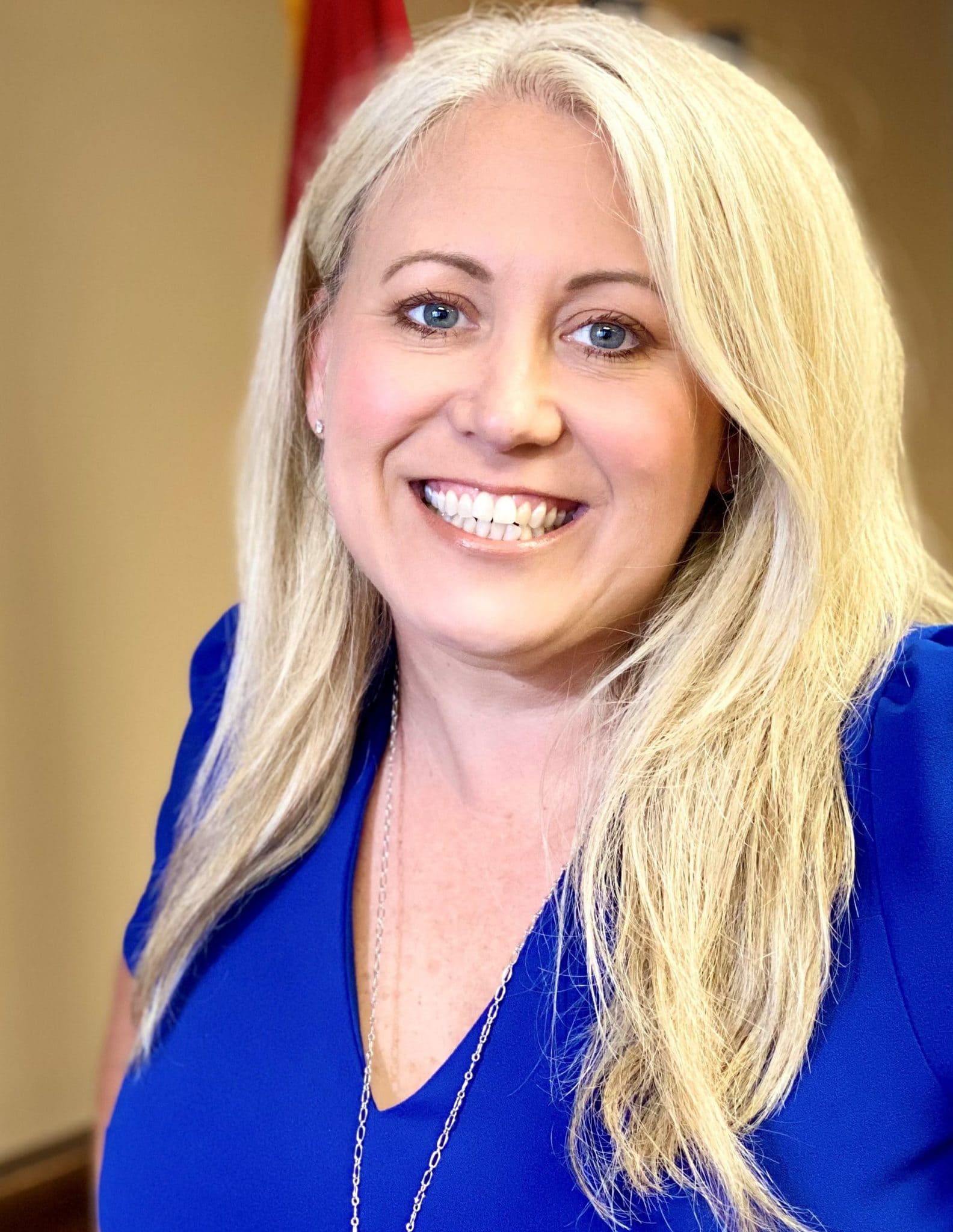 I was named Deputy Attorney General for the Public Protection Department (PPD) of the Arkansas Attorney General’s Office (AR AGO) on September 1, 2021. I began my career with the AR AGO in January 2019 as an Assistant Attorney General after several years of serving the Arkansas Department of Human Services as an assistant director in the Division of Aging, Adult, and Behavioral Health Services. I also previously served as a staff attorney for the Arkansas Securities Department, which was the first place I began using the terms “deceptive” and “misleading” and the first place I developed a passion for protecting vulnerable or unsophisticated consumers. In retrospect, most of my career has involved some type of consumer protection – even before I knew to call it “consumer protection.”
I was named Deputy Attorney General for the Public Protection Department (PPD) of the Arkansas Attorney General’s Office (AR AGO) on September 1, 2021. I began my career with the AR AGO in January 2019 as an Assistant Attorney General after several years of serving the Arkansas Department of Human Services as an assistant director in the Division of Aging, Adult, and Behavioral Health Services. I also previously served as a staff attorney for the Arkansas Securities Department, which was the first place I began using the terms “deceptive” and “misleading” and the first place I developed a passion for protecting vulnerable or unsophisticated consumers. In retrospect, most of my career has involved some type of consumer protection – even before I knew to call it “consumer protection.”
We strive in PPD to provide excellent customer service to all Arkansans. In addition to the assistant attorneys general, PPD includes a staff of investigators who work to mediate consumer complaints by facilitating communication between consumers and businesses. In 2021, we obtained $3,532,608.57 for consumers through the complaint mediation process – a 25% increase from the prior year. Our investigators’ success allows our attorneys more time to focus on helping good businesses improve their practices and stopping bad actors from taking consumers’ hard-earned money.
Even after spending over a decade in public service, I was not prepared to see the sheer volume of bad actors who target our citizens in so many different ways. We data mine our consumer complaints to look for trending scams (and other relevant “hot spots”) and use the AR AGO social media accounts to educate and warn consumers. We also collaborate with social groups and industry in an effort to reduce the amount of money leaving our state through fraudulent transactions. From that collaboration came the SAFER AR Act: Safeguarding Against Financial Exploitation of Retirees for Arkansans. Under Arkansas law, employees of financial institutions have long been mandated to report abuse, neglect, or exploitation of older adults to Adult Protective Services (APS). However, APS only accepts the case if the victim is known to be impaired or endangered. Because of this, most financial exploitation cases or scams reported to APS were not referred to the AR AGO or any other agency. The SAFER AR Act went into effect late last year and now requires APS, under the Arkansas Deceptive Trade Practices Act, to refer cases of suspected financial exploitation to the AR AGO within 48 hours. From these referrals, PPD works with the affected financial institutions and victims to quickly stop funds from going to bad actors and to hold the bad actors accountable.
I look forward to attending more NAAG events (in person) and meeting you! Being named a deputy attorney general is daunting enough without starting the position in the middle of a pandemic.
My favorite part of everyone’s “Consumer Chief of the Month” articles are the personal stories, so I wanted to share one with likeminded colleagues. My teenage daughter Anna discovered online shopping around month 4 of the pandemic. She began making a Pinterest board for “must haves” that she’d found on TikTok and Instagram. As she sent me the suggested purchases, I discovered that 3 out of 4 websites were spoofed or otherwise appeared fraudulent. This, of course, irritated my girl who vehemently assured me that the sites were legitimate because a girl on TikTok said so. Of course. She began calling me “skeptical” in the most condescending, eye-rolling way only accomplished by a teenager. Then, Anna used her friends to suggest to me an item for purchase on a specific site. When I reviewed the site and declared it questionable-at-best, Anna would pronounce herself the victor because she knew exactly what I was going to say. I sat them all down and taught them the red flags to watch for when online shopping. Eye rolls all around.
Other articles in this edition include:
- Korean Company Has Sufficient Nexus with State to Permit Gas Price Manipulation Suit by California Attorney General
- Attorney General Consumer Protection News: March 2022
- Federal Consumer Protection News: March 2022





